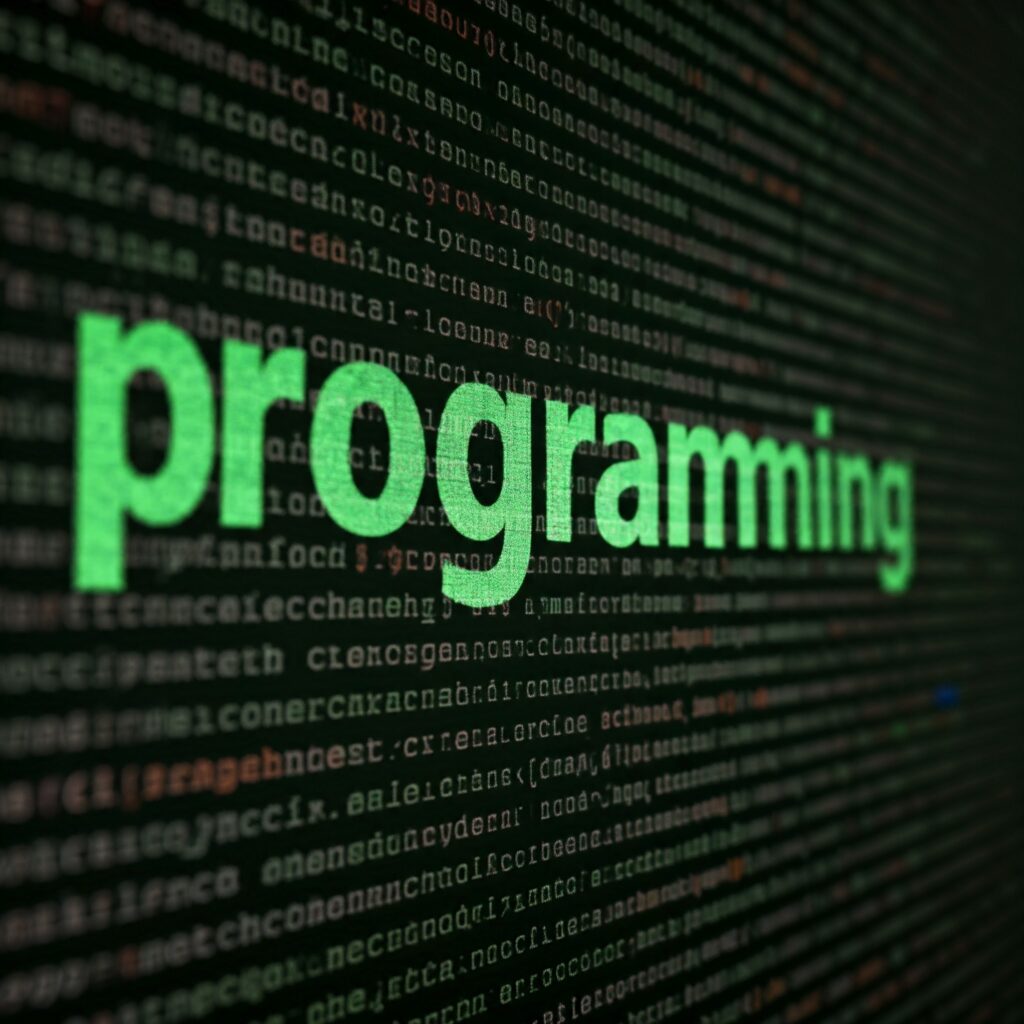
Tyronne Ratcliff here.
Are you ready to take your coding game to new heights?
This blog post is packed with 94 actionable programming tips to help you write cleaner, more efficient, and more powerful code.
Whether you’re a seasoned developer or just starting your coding journey, these tips (when applied) will turn you into a coding ninja!
Master the Fundamentals:
- Read the Documentation: Always consult the official documentation for the language, framework, or library you’re using.
- Write Clean Code: Prioritize readability, maintainability, and simplicity.
- Practice Regularly: Consistent practice is key to improving your skills.
- Learn from Others: Study open-source projects and seek guidance from experienced developers.
- Break Down Problems: Divide complex problems into smaller, more manageable subproblems.
- Use Version Control: Effectively manage your codebase with tools like Git.
- Test Your Code: Thoroughly test your code to identify and fix bugs early.
- Automate Repetitive Tasks: Use scripts and automation tools to save time and effort.
- Learn from Your Mistakes: Analyze your errors to prevent future occurrences.
- Stay Curious: Continuously explore new technologies and programming paradigms.
Level Up Your Skills:
- Master Data Structures and Algorithms: Understand fundamental data structures like arrays, linked lists, stacks, queues, trees, and graphs, and algorithms like sorting, searching, and dynamic programming.
- Learn a Functional Programming Language: Explore languages like Haskell or Elixir to gain a different perspective on programming.
- Dive into Object-Oriented Programming: Grasp concepts like classes, objects, inheritance, polymorphism, and encapsulation.
- Explore Design Patterns: Learn common design patterns to solve recurring problems in software design.
- Practice Test-Driven Development (TDD): Write tests before writing code to ensure quality and maintainability.
- Learn a Static Typing Language: Experience the benefits of type safety with languages like TypeScript or Java.
- Master Regular Expressions: Use regular expressions to efficiently manipulate text patterns.
- Learn a Scripting Language: Automate tasks and system administration with languages like Python or Bash.
- Understand Asynchronous Programming: Handle concurrent operations effectively with techniques like async/await or callbacks.
- Master Debugging Techniques: Use debuggers and logging to efficiently identify and fix issues.
Efficiency and Productivity:
- Use a Good Text Editor or IDE: Choose a tool that suits your workflow and provides features like syntax highlighting, code completion, and debugging.
- Learn Keyboard Shortcuts: Accelerate your development process by mastering keyboard shortcuts.
- Use Code Snippets: Reuse common code snippets to save time.
- Write Clear and Concise Comments: Explain the purpose of your code without being overly verbose.
- Use a Linter: Identify and fix potential code quality issues early.
- Optimize Your Code: Analyze your code for performance bottlenecks and optimize accordingly.
- Leverage Built-in Libraries and Frameworks: Use existing libraries and frameworks to accelerate development.
- Use a Task Runner: Automate build, test, and deployment processes.
- Learn to Use a Version Control System Effectively: Master branching, merging, and conflict resolution.
- Collaborate Effectively: Work seamlessly with other developers through code reviews and pair programming.
Soft Skills to Acquire:
- Communicate Clearly: Effectively convey your ideas and technical knowledge to both technical and non-technical audiences.
- Stay Updated with Technology Trends: Keep up with the latest advancements in the industry.
- Network with Other Developers: Build relationships with other developers to learn from each other and collaborate on projects.
- Contribute to Open-Source Projects: Give back to the community and gain valuable experience.
- Learn to Learn: Develop effective learning strategies to continuously improve your skills.
- Take Breaks: Avoid burnout by taking regular breaks and practicing mindfulness techniques.
- Set Realistic Goals: Break down large projects into smaller, achievable tasks.
- Prioritize Tasks: Focus on the most important tasks first.
- Time Management: Use time management techniques like the Pomodoro Technique to maximize productivity.
- Learn to Say No: Avoid overcommitting yourself and prioritize your well-being.
Advanced Techniques:
- Master Functional Programming Concepts: Explore concepts like higher-order functions, currying, and immutability.
- Learn a Domain-Specific Language (DSL): Use DSLs to solve specific problems more efficiently.
- Explore Metaprogramming: Write code that generates or manipulates code.
- Learn a Low-Level Language: Understand how computers work at a fundamental level.
- Dive into Compiler Theory: Learn how compilers translate code into machine code.
- Master Parallel and Concurrent Programming: Write efficient code for multi-core and distributed systems.
- Learn Machine Learning and AI: Apply these techniques to build intelligent systems.
- Explore Web Development: Build interactive web applications using HTML, CSS, and JavaScript.
- Master Mobile Development: Create apps for iOS and Android.
- Learn Game Development: Develop video games using game engines like Unity or Unreal Engine.
Security Best Practices:
- Input Validation: Validate user input to prevent malicious attacks.
- Secure Password Storage: Use strong hashing algorithms to store passwords securely.
- Protect Against SQL Injection: Use parameterized queries or prepared statements to prevent SQL injection attacks.
- Secure Data Transmission: Use HTTPS to encrypt data transmitted over the network.
- Regular Security Audits: Conduct regular security audits to identify vulnerabilities.
- Stay Updated with Security Patches: Keep your software and dependencies up-to-date.
- Use a Web Application Firewall (WAF): Protect your web applications from attacks.
- Implement Strong Access Controls: Limit access to sensitive data and systems.
- Be Mindful of Third-Party Libraries: Use reputable libraries and keep them updated.
- Educate Yourself on Security Best Practices: Stay informed about the latest security threats and vulnerabilities.
Problem-Solving and Creativity:
- Break Down Problems into Smaller Subproblems: Divide and conquer complex problems.
- Use a Top-Down or Bottom-Up Approach: Choose the appropriate approach based on the problem’s complexity.
- Think Critically: Analyze problems from different angles to find optimal solutions.
- Practice Algorithmic Thinking: Develop the ability to design efficient algorithms.
- Use a Whiteboard or Pen and Paper: Visualize problems and solutions.
- Collaborate with Others: Seek input from others to gain new perspectives.
- Experiment and Iterate: Don’t be afraid to try different approaches and learn from failures.
- Think Outside the Box: Challenge conventional thinking and explore innovative solutions.
- Embrace Failure: Learn from mistakes and use them as opportunities for growth.
- Cultivate a Growth Mindset: Believe in your ability to learn and improve.
Career Advancement:
- Build a Strong Portfolio: Showcase your skills and projects on platforms like GitHub.
- Network with Other Developers: Attend conferences, meetups, and online forums.
- Seek Mentorship: Learn from experienced developers and get guidance on your career path.
- Continuous Learning: Stay up-to-date with the latest technologies and trends.
- Develop Soft Skills: Improve your communication, teamwork, and problem-solving skills.
- Gain Industry Certifications: Validate your expertise with certifications.
- Contribute to Open-Source Projects: Gain visibility and build a reputation in the community.
- Write Technical Blogs or Articles: Share your knowledge and insights with others.
- Give Technical Talks: Present at conferences or meetups to build your public speaking skills.
- Seek Feedback: Actively seek feedback from colleagues and mentors to improve your performance.
Beyond the Code:
- Take Care of Your Mental Health: Prioritize self-care and stress management.
- Practice Mindfulness: Reduce stress and improve focus through mindfulness techniques.
- Get Enough Sleep: Ensure you get adequate rest to optimize your cognitive function.
- Exercise Regularly: Physical activity can boost your energy levels and creativity.
- Eat a Healthy Diet: Fuel your body with nutritious food to support optimal brain function. (extremely important)
- Stay Hydrated: Drink plenty of water to stay focused,alert and eliminate brain fog.
- Take Breaks: Step away from your computer for a minute to rest your eyes and mind.
- Find a Work-Life Balance: Set boundaries between work and personal life.
- Learn to Delegate: Share responsibilities with others to reduce your workload.
- Say No When Necessary: Avoid overcommitting yourself and prioritize your well-being.
Additional Tips
- Use a Stand-Up Desk: Improve your posture and reduce back pain.
- Use Ergonomic Equipment: Invest in a good chair, keyboard, and mouse to prevent discomfort.
- Take Eye Breaks: Follow the 20-20-20 rule: every 20 minutes, look at something 20 feet away for 20 seconds.
Hope you found these programming tips useful. What was your favorite tip?
Have any tips to share with the community? If so leave us your thoughts in the comments section below!



